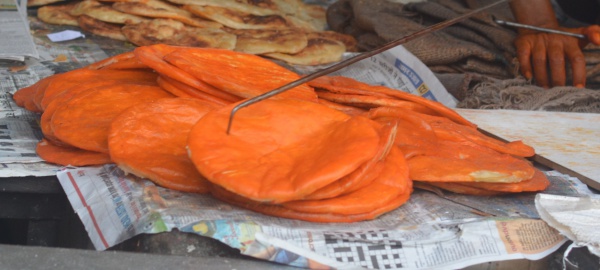Facts About Sheermal
Sheermal, sometimes spelled Shirmal, is a delectable saffron-infused flatbread with origins in Greater Iran. The name "sheermal" derives from the Persian words meaning "milk rubbed." This culinary delight was brought to North India by the Mughal emperors and has since become a beloved staple in cities like Lucknow, Hyderabad, and Aurangabad. It also holds a significant place in Awadhi cuisine and enjoys widespread popularity in Old Bhopal.
To make sheermal, one creates a mildly sweet flatbread using maida (refined flour), which is leavened with yeast and baked in a tandoor or oven. While it was originally made in the manner of a simple roti, contemporary sheermal is more akin to naan. The dough is enriched with warm, sweetened milk, flavored with saffron and cardamom, resulting in a unique taste and texture that is somewhat reminiscent of Danish pastry.
In Iran, slight regional variations to the sheermal recipe add to its charm, making it a cherished delicacy shared across different areas. This versatile bread is often paired with Lucknow kababs or served alongside nihari, demonstrating its adaptability to various culinary contexts.

 Afghanistan
Afghanistan